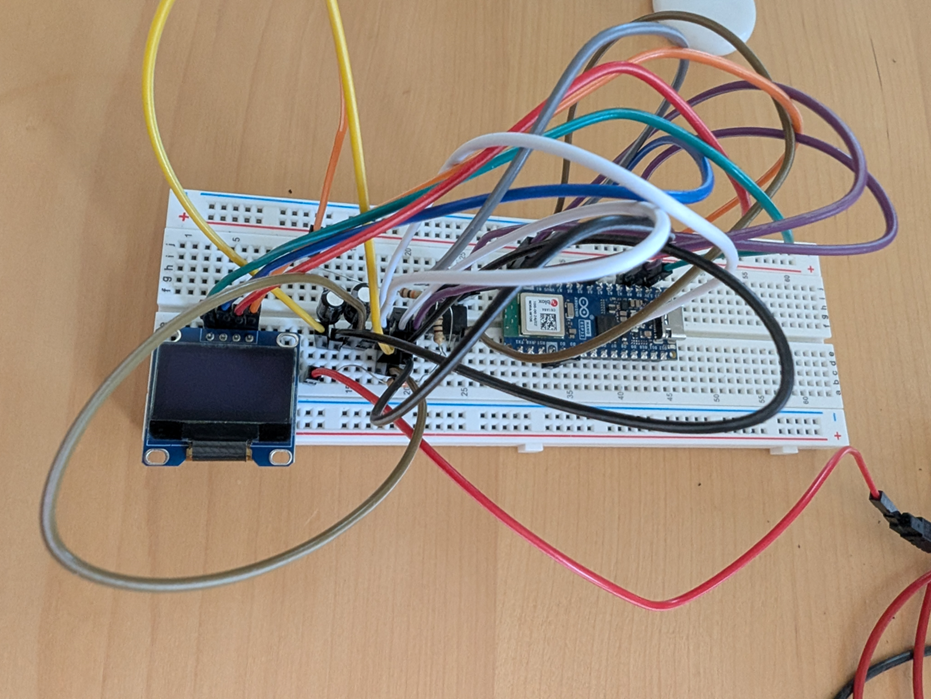Plants Speak. We've Learned to Listen.
"Imagine if every plant could tell us when animals approach, what emotions we're feeling, and even when we're about to get sick—all through simple electrical signals we're just learning to decode."
In the five years since we first detected plants responding to human presence, we've discovered something remarkable: plants have been talking all along. We just needed to learn their language.

Plants Speak. We've Learned to Listen.
In 2020, we made our first documentation that plants generate distinct electrical signals when humans approach. What began as a single experiment has evolved into a robust research program spanning five years, multiple universities, and dozens of researchers.
Reproducible Results
97% accuracy in classifying human emotional states through plant bioelectric signals
Published Evidence
12 peer-reviewed papers documenting plant responses to human presence
Rigorous Controls
Faraday cage experiments confirm non-electromagnetic mechanism
The Evolutionary Framework
Our five-year investigation has led to a simple but powerful hypothesis: plants evolved early warning systems to detect approaching herbivores before physical contact occurs.
Animal Defense
Animals that lose body parts die → evolved sophisticated distance sensing
Plant Adaptation
Plants that lose body parts often grow stronger → but still benefit from advance warning
Early Detection
Early detection allows proactive defense → chemical mobilization, resource allocation, neighbor alerts
This isn't mysticism. It's evolution.
From Lab Bench to Kitchen Garden
Our research journey spans five years of rigorous scientific investigation, with validated results across multiple laboratories and institutions.
Current Validated Capabilities
- Emotional states (angry, happy, sad, neutral): 97% accuracy
- Stress levels: Correlation with exam performance
- Individual identification: 66% accuracy across 6 people
- Sleep stages: Under investigation (preliminary results promising)
Primary Research Hub
galaxylabs.org - International Collaborative Innovation Network
- Founded 2007 as COINs Verein, Switzerland
- Coordinating BioLingo research across 9+ international institutions
- Open science and democratized research focus
Active International Network
Join the Investigation
We're developing an affordable, open-source plant sensor system to democratize this research. This is our vision, not our current reality.
The Future BioLingo Kit
- Cost target: Under $100 (currently prototyping)
- Open-source hardware designs (in development)
- User-friendly software platform (planned)
- Global data sharing network (conceptual)

Research You Could Help Investigate
The Herbivore Test
The critical experiment we haven't done yet
- Test plant responses to herbivores vs. carnivores
- Our hypothesis predicts herbivores should trigger stronger responses
Species Mapping
Expanding our limited species database
- We've only tested ~15 plant species systematically
- Need data from wild plants, different families
Environmental Factors
Understanding what affects plant sensitivity
- Seasonal variations (preliminary data suggests major effects)
- Soil conditions, plant health, age effects
Current Limitations (Being Honest)
What We Don't Have Yet:
- Mass-produced affordable sensor kits
- Turnkey software for non-researchers
- Standardized protocols for citizen scientists
- Quality control systems for distributed research
What We're Working On:
- Sensor cost reduction and simplification
- Educational curriculum development
- Data platform architecture
- Research protocol standardization
Bring Real Science to Your Classroom
Connect your students with cutting-edge research and provide authentic scientific experiences.
What We Can Offer Now
Research Collaboration Opportunities:
- Connect your students with our research team
- Access to our published methodologies and protocols
- Mentorship for student research projects
Educational Resources Available:
- Published papers accessible for advanced students
- Experimental protocols tested in university settings
Implementation Pathways
Partner School Program:
Work directly with our research team to:
- Set up experiments using research-grade equipment
- Train teachers in plant bioelectric measurement
DIY Research Track:
For schools wanting to build their own capabilities:
- Access to our open-source hardware designs (in development)
- Research protocol documentation
Open Source. Open Science. Real Progress.
We're committed to democratizing access to plant communication research through open-source technology and transparent science.
What We've Built
Research Infrastructure (2020-2025):
- Validated measurement protocols for plant bioelectrics
- Machine learning pipelines for signal classification
- Quality control methods for artifact elimination
Publications and Open Science:
- 12 peer-reviewed papers with full methodology
- Raw data available for key studies
- Reproducible analysis code (where available)
What We're Developing
Hardware Democratization:
- Open-source bioelectric amplifier designs
- Cost reduction from $1000+ research equipment to <$100 kits
- 3D printable electrode systems
Software Platform:
- Real-time signal visualization tools
- Machine learning analysis pipelines
- Educational interfaces for non-experts
Current Status: Prototype Development
We're moving from research-grade equipment to affordable, accessible tools. This is engineering work in progress, not finished products.
The Global BioLingo Research Network
Join our international community of researchers, educators, and citizen scientists.
Who We Are Today
Research Collaborators:
- 20+ researchers across 9 universities and institutions
- Multiple countries: Switzerland, Germany, Spain, Poland, Italy, USA
- Diverse expertise: Plant biology, AI, education, biodynamics, arts
Student Involvement:
- Student co-authors on multiple peer-reviewed papers
- International student exchange through research projects
What We're Building Toward
Vision for Expanded Network:
- Affordable sensor kits enabling global participation
- Educational curriculum for authentic research experiences
- Data platform for worldwide collaboration
- Citizen science community for discovery and validation
Current Reality: We're a research consortium transitioning toward public engagement. The infrastructure for mass participation doesn't exist yet, but the scientific foundation is solid.
Join Our Research
For Students/Teachers
Contact us about research collaboration opportunities. We work with motivated individuals and institutions interested in authentic plant communication research.
For Scientists
Join our international research network. We're always seeking collaborators for replication studies, new experimental designs, and theoretical development.
For Institutions
Partner with us for research projects, student exchanges, and technology development. Several universities are already active collaborators.
Join Our Research
Partner School Program
Work directly with our research team using research-grade equipment. Perfect for high schools and universities.
Submit collaboration request (2 minutes)
Schedule setup call with research team
Receive equipment loan and training
Students conduct real research
Potential co-authorship on publications
DIY Research Track
Build your own plant communication lab with our open-source designs and protocols.
Download our hardware designs
Access complete research protocols
Get technical support from network
Share data with global research
Contribute to ongoing studies
Research Network
Join our international team of 20+ researchers across 9+ institutions in replication and new studies.
Submit research proposal
Access established protocols
Collaborate on data analysis
Co-author publications
Present at international conferences
Get Involved
"We've proven plants can detect animal presence and human states. Now we're working to understand how—and to make this research accessible to everyone."
Research Coordination
- galaxylabs.org
International Research Network Hub
- Peter Gloor
pgloor@galaxylabs.org
- Location
Switzerland (International collaborations)
- Network
20+ researchers across Europe and beyond
Current Status & Next Steps
- Current Status
Active research program seeking to democratize access
- Next Milestone
Affordable sensor development and educational platform
- Timeline
Citizen science tools development ongoing
Get Connected
Ready to join our research community? Fill out the form below and we'll connect you with the right opportunities.